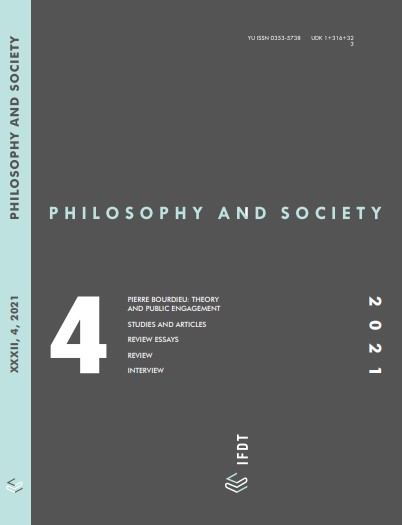PIERRE BOURDIEU AND POLITICS
PIERRE BOURDIEU AND POLITICS
Author(s): Frédéric Lebaron, Ivica Mladenović, Franck Poupeau, Gisèle Sapiro, Zona Zarić, Philip GolubSubject(s): Contemporary Philosophy, Sociology of Politics
Published by: Institut za filozofiju i društvenu teoriju
Summary/Abstract: This paper is the product of a roundtable discussion held at the international conference Horizons of Engagement: Eternalizing Bourdieu, organized by the Institute for Philosophy and Social Theory of Belgrade, Serbia, the Centre for Advanced Studies of The University of Rijeka, Croatia, the École Normale Supérieure of Paris, France, and the French Institute in Serbia. The event was planned on the occasion of the ninetieth anniversary of the birth of one of the world’s leading sociologists – Pierre Bourdieu (1930–2002). The greatest indicator of the scope of Bourdieu’s influence is the fact that he has become the world’s most cited sociologist, ahead of Émile Durkheim, and the world’s second most cited author in social sciences and the humanities, after Michel Foucault and ahead of Jacques Derrida. As part of this discussion, we address the subject of “Bourdieu and Politics”, politics – broadly constructed. We evoke Pierre Bourdieu’s involvement in public affairs during the 1990s, while taking into account the concept of the collective intellectual that Bourdieu introduced into social sciences by giving it a specific meaning.
Journal: Filozofija i društvo
- Issue Year: 32/2021
- Issue No: 4
- Page Range: 567-586
- Page Count: 20
- Language: English

